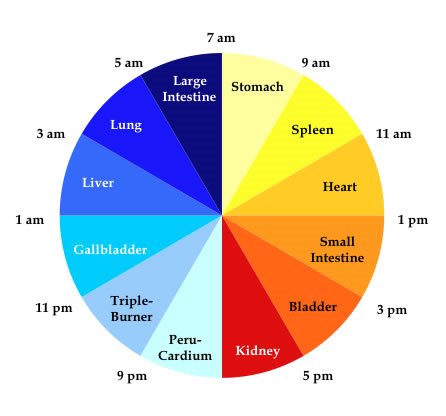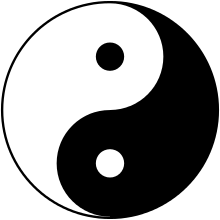The impact of emotions on our health

The impact of emotions on our health cannot be underestimated. Emotions play a vital role and have a huge impact on how we feel, on our zest for life, and in creating the internal situations that can lead to health or disease. The health of the mind and the body are inextricably interlinked with one affecting the other and vice versa
All forms of energy within the body have an emotional association whether it be a healthy, positive manifestation or one that is negative and distorted. It can be helpful to look at the Chakra system to see how positive or negative energy can affect the body.
Ayurvedic medicine embraces the philosophy that disease has a psychic foundation. Illness starts in the mental field, and so it’s important to maintain a high level of ethical standards and integrity in one’s life in order to prevent disease.
So what is an emotion? The definition is a strong feeling deriving from one’s circumstances, mood, or relationships with others. Feelings arise as an energetic balance to the events in our lives.
We all go through ups and downs, experiencing a wide range of emotions throughout our lifetime. However, if the emotions experienced are either long-lasting or very intense then they can become causes of disease within the body.

Emotional associations of the organs
There are 7 main emotions and excess of any of them can impact on the organs of the body.
Meridians and the organs
In the context of Yin Yoga, when we look at the meridians that are most directly affected by the practice we start to see the how, by activating and stimulating the specific meridians, we are able to balance the emotional body.
Yin Meridians
Yang Meridians

The body remembers
All that happens within the body and mind is stored by the very tissues of the body, whether or not you consciously remember a particular trigger, event, emotion, etc. Emotions such as fear, anger and sorrow produce a contraction within the body on many levels – physically, emotionally, mentally, energetically, and this contraction is also manifested by a restriction of the breath. Our resistance to feeling these negative emotions maintains the energetic contraction and builds up within the body producing energetic scars which we can carry for a lifetime. Unless one consciously undertakes to release this stored up catalogue of our life’s emotions, they remain trapped within the tissues.
How does yoga help to balance the emotions?
When you relate the role of the emotions on the body to the philosophy of yoga (the Sutras of Patanjali), we start to understand that the principal aim of our yoga practice is to control the fluctuations of the mind/emotions. It was clearly understood thousands of years ago that with a calm and stable mental realm, a practitioner would not be disturbed by outside influences. This is achieved through an 8 step path outlined by Patanjali called Ashtanga which includes the following stages:
Yamas – abstinence, restraint or one’s ethical conduct
Niyamas – observances for developing spiritual discipline
Asanas – postures to create a healthy body
Pranayama – learning to control the breath or prana, the vital life force energy
Pratyahara – withdrawing of the senses from outside distractions
Dharana – developing mental focus and concentration
Dhyana – practicing meditation Samadhi – attaining a higher state of consciousness
Niyamas – observances for developing spiritual discipline
Asanas – postures to create a healthy body
Pranayama – learning to control the breath or prana, the vital life force energy
Pratyahara – withdrawing of the senses from outside distractions
Dharana – developing mental focus and concentration
Dhyana – practicing meditation Samadhi – attaining a higher state of consciousness

Whilst all forms of yoga give the body a good stretch and help stabilize and focus the mind, the Yin Yoga practice sets out to specifically target the very deepest and densest connective tissues within the middle third of the body, a region which is home to the main muscles which react to outside stressors (fight or flight response of the sympathetic nervous system). One of the principal muscles in this group is the psoas muscle which connects the spine to the legs. So renowned is it for retaining emotional tension, it has been aptly nicknamed ‘the muscle of the soul’. Therefore this part of the body is an area which has come to be associated with the harbouring of emotions and stress.
As remains true to the Taoist principles of Yin and Yang, the problem houses the solution and vice versa, the two co-existing. Fortunately when we practice Yin Yoga the act of forward folding the spine (flexion) and surrendering into the forward bends helps to activate the parasympathetic nervous system (rest and repair), and with the rotation of the femurs or thigh bones we release tension in the hips. Not only this but through the slow, meditative movement of the yin practice we start to get a much clearer sense of what’s going on inside.
The Yin practice can bring about fairly strong responses to the poses through the stimulation of the meridians, and in this quietened state we are more open to listening and feeling what’s happening in the moment, not only physically but also emotionally. As the body is in safe, supported postures on the mat we can move towards those ‘edges’ and explore what’s going on within without trying to push anything away, learning to accept what we find exactly as it it.
Thanks to the natural slowing and deepening of the breath, we become more aware of our emotional and mental state, and this quiet practice allows us to just be with whatever arises without judgement, observing our experience. In doing so it assists in releasing the constriction in all levels of our being brought about by the storing of negative emotions.
The natural slowing of the breath also helps the parasympathetic nervous system to halt the release stress hormones such as adrenaline and cortisol, instead calming us which aids the return of the body systems into homeostasis. On an emotional level Yin Yoga can bring about a state of peaceful equanimity as we move towards a place of self-acceptance.
Subscribe to Newsletter
Sign Up for our weekly newsletter to get the latest news, update and amazing offers delivered directly in your inbox.

